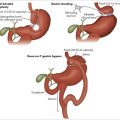chapter 17 The general check-up
MOTIVATORS
HOW OFTEN?
How often a person should have a medical check-up depends on their age and general health status.
HISTORY
ELEMENTS OF THE HISTORY
Elements of the history are as follows:
GENERAL PHYSICAL EXAMINATION
Despite some medical debate about its value, the comprehensive physical examination is a core clinical skill essential to the integrative approach to healthcare, described in the Medical Journal of Australia as ‘the doctor’s best kept secret—powerful, portable, fast, cheap, durable, reproducible and fun’.1 It is about confirming the normal and looking for the abnormal. It will interact with and complement the medical history, which will have revealed areas that may require special attention and is an absolute prerequisite to further investigation of symptoms and signs.
BABIES
CHILDREN
ADULTS
INVESTIGATIONS
A comprehensive medical check-up may require referral for:
PREVENTIVE INTERVENTIONS
Preventive strategies will depend on the patient’s age and state of health (see chapters on babies and children (Ch 55), adolescents (Ch 56), pregnancy and antenatal care (Ch 54) and the elderly (Ch 57)) and can have a powerful effect on reducing the future risk of chronic disease.





